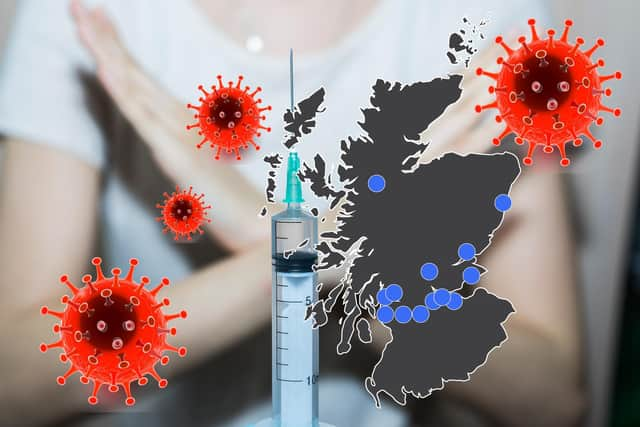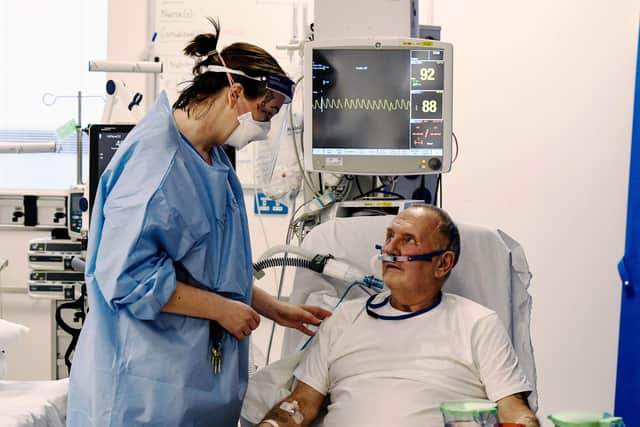Scotland's Covid case numbers are slowing, but worst is to come for NHS - analysis
While it tends to fluctuate, the number of new cases announced each day may also be falling, now below 6,000 for two days in a row.
Ms Sturgeon emphasised this is grounds for “cautious optimism”, but this good news does not extend to Covid-related hospitalisations and deaths.
Advertisement
Hide AdAdvertisement
Hide AdThese are likely to reach their peaks in the weeks to come, as a proportion of the huge recent spikes in case numbers develop into serious illness.


Some 883 people were in hospital with Covid-19 on Tuesday, while 82 were in intensive care.
In both cases the figures are still only half what they were during the second wave, and with the success of the vaccination programme they are unlikely to rise back to the horrific picture of January and February of this year.
But more than six months on, with vaccination almost completed, the NHS should not be expected to return to those dark days.


And while Covid hospitalisations may not be as bad as during the second wave, some other areas of the NHS are struggling even more.
Health boards around the country have been warning for weeks they are under too much pressure, that services are too stretched, that staff are too exhausted.
This has not relented, and the rise in Covid patients which will follow last week’s case spike will only increase the pressure.
Advertisement
Hide AdAdvertisement
Hide AdStaff in every corner of the health service are dreading winter. They always do, and the NHS was hardly in sparkling condition pre-pandemic.
But with staffing shortages alongside a huge demand for emergency care, outbreaks of non-Covid viruses, Covid patients and the backlog of non-urgent care, which is becoming increasingly urgent, many exhausted NHS workers are dreading the months to come even more than usual.
It’s an ever-present crisis that needs urgent attention, and one that neither vaccine passports, nor the vaccination of 12 to 15-year-olds – plans for both of which are expected to be outlined by the Scottish Government in the coming days – will be enough to solve.
A message from the Editor:
Thank you for reading this article. We're more reliant on your support than ever as the shift in consumer habits brought about by coronavirus impacts our advertisers.
If you haven't already, please consider supporting our trusted, fact-checked journalism by taking out a digital subscription.
Comments
Want to join the conversation? Please or to comment on this article.
